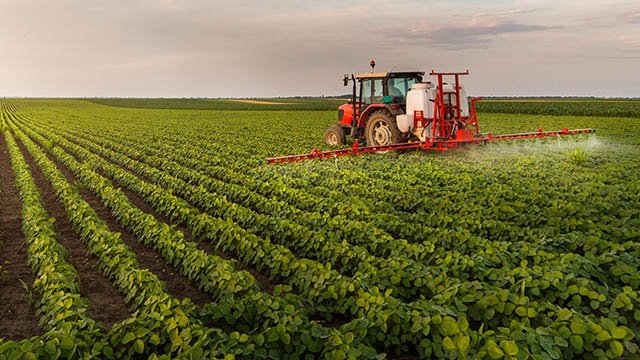This article first published in GM Watch
Farmers can maintain yields and protect health.
This year the EU will decide on the re-approval of glyphosate, the active ingredient in Roundup, the world’s most popular and controversial weedkiller. Exposure to the herbicide not only poses a risk to human health and other living organisms, it also threatens biodiversity and the future of agriculture.
Published in collaboration with the European Greens, PAN Europe’s new report shows that much safer non-chemical alternatives exist for all known major uses of glyphosate-based herbicides (GBH) and how the transition to a glyphosate-free agricultural system is economically feasible.
There is a widespread misbelief that herbicides are safe for human health and have little impact on the environment. Mainstream agricultural systems are now almost completely dependent on the use of herbicides, including glyphosate.
Weed management is one of the major challenges in agriculture, particularly in arable and vegetable cropping systems but there are other solutions to glyphosate. Dr Charles Merfield, a world-leading expert in non-chemical weed management and the main author of the report, says, “Managing weeds without agrichemical herbicides is entirely feasible. Organic farmers and growers have been doing this for over 70 years! Scientists and machinery companies have built up a huge amount of experience, expertise and science, and have developed techniques and many machines for non-chemical weed management.”
As the report shows there are safer low and high-tech alternatives to glyphosate in weed management. Farmers can maintain their yields, avoid weeds building resistance, protect soil health and biodiversity, and minimise erosion. In parallel, they protect their own health and that of their families and neighbours.
Dr Merfield adds, “Shifting to non-chemical weed management requires changes to the wider farm system, principally diversification, such as a wider range of crops and livestock, in a rotation. This will have multiple benefits for the farm and shared environment, e.g., soil health, biodiversity, fewer novel entities (such as agrichemicals) in the environment, cleaner water and air, and so on. Moving from herbicide-dominated weed management to integrated weed management focused on non-chemical techniques is not therefore a risk, rather it is a huge opportunity to improve all aspects of farm systems including profitability.”
Download the Report:
https://issuu.com/pan-uk/docs/alternative_20methods_20in_20weed_2
Source: PAN Europe



Love the upcoming diversification of weed management for our future crops health for of all of us🙌 & the bottom line. carry on sounds promising.👍
It is unconscionable and unacceptable that the United States still allows Glyphosate and other toxic chemicals to be spayed on our crops for food consumption. Our soils, plants an waterways are being poisoned, our Endocrine systems and our Gut health has been and continues to be disrupted and destroyed by these toxins and poisons. This is a disgrace and this needs to CHANGE NOW. This Nation now has a lot more of SICK people because of this harmful system. THIS MUST STOP.
Your ground-breaking reporting on the effects of glyphosates and GMO products is invaluable. Thank you for all of your hard work and great reporting!
I have been eating Organic for 10+ years and still found out I have large quantities of Glyphosate in body through testing ( I also developed Crohn’s, Leaky Gut/Leaky Brain and many other health issues). Having glyphosate levels in ground waters and municipal waters high in CA makes it impossible to avoid exposure , because it seems it is present even in organic food just through watering. I had to move to different state to my own organic farm, but neighboring farms still influence my food quality as all our bee hives die yearly and honey is poisoned as well. What action can I take to protect myself legally from poisoning and exposure? I am already cooperating with extremely isolated farm that is clear of neighboring influences, but 99 percent of USA population won’t have access to those isolated farms and their produce! Any legal advice is appreciated